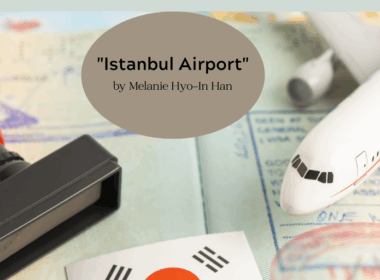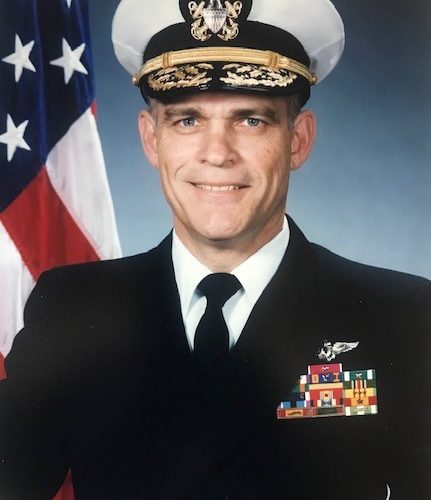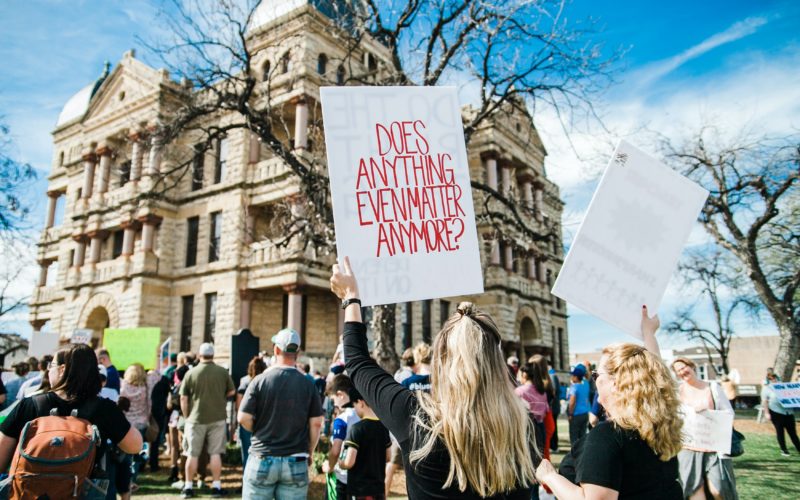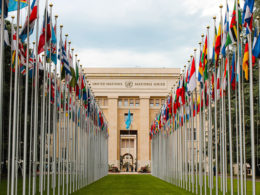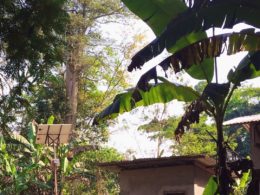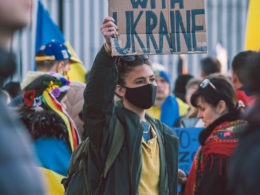Introduction
Every once in a while, you come across someone whose life consistently exemplifies the concept of public service. In this issue, we’re honored to introduce to you just such a person and fellow TCK: R. Timothy (Tim) Ziemer, retired US Navy Rear Admiral. Tim’s career has included service in the military, the US government, and the humanitarian nonprofit sector. It is difficult to introduce in a concise manner such a rich and varied life and career of service!
Tim grew up in the central highlands of what was then called French Indochina—now Vietnam—as the son of missionaries. He returned to the US for college, and in 1968, when he was a senior, he received news that his father had been killed and his mother badly injured while helping villagers escape who had fled to their mission compound for safety. This loss was a key factor in his decision, following graduation, to enlist in the US Navy, where he was trained as a pilot. He ended up serving in South Vietnam during the Vietnam war, flying 550 combat missions and earning numerous awards.
Tim had a distinguished career in the Navy, eventually being promoted to Rear Admiral in 1996 and assigned as Commander of the US Navy’s Mid-Atlantic Region. He served in numerous other key roles, including Deputy Director for Operations in the National Military Operations Center on the Joint Command Staff. After serving for a time as the Executive Director of World Relief, a Christian humanitarian organization, he was appointed by then-President George W. Bush in 2006 to become the Global Coordinator of the US President’s Malaria Initiative (PMI). Tim’s leadership of this initiative for a decade, under Presidents Bush and Obama, contributed to dramatic reductions in malaria deaths and illness around the world, including a 71 percent reduction in malaria mortality among children in sub-Saharan Africa.
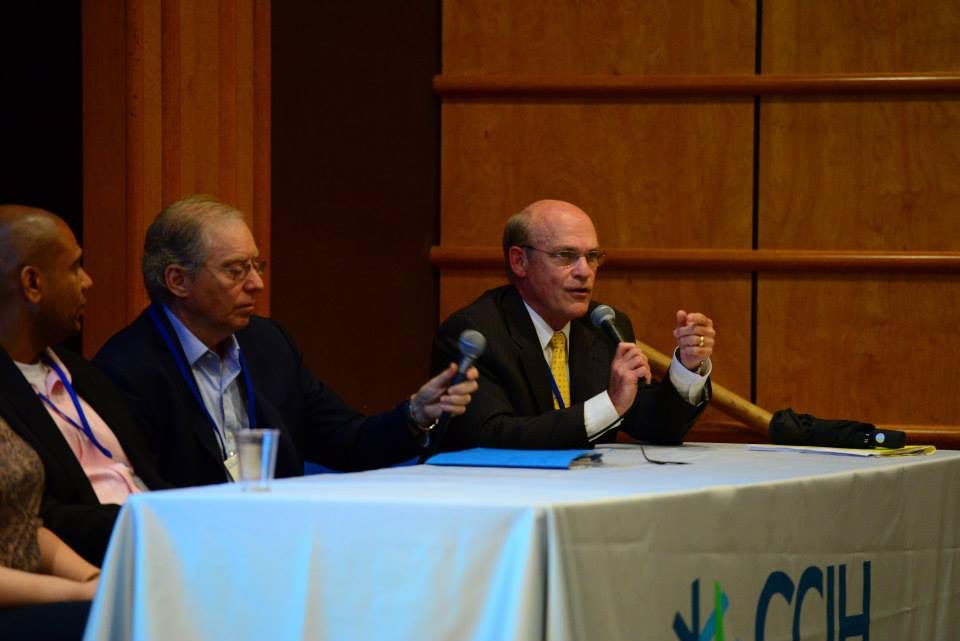
In early 2017, Tim was appointed as the director of global health security and biothreats on the Trump Administration’s National Security Council (NSC), where he served with excellence until the position was abolished in a restructuring of the NSC in 2018 under National Security Advisor John Bolton. From that point until his retirement in June 2020, Tim led the Democracy, Conflict, and Humanitarian Assistance Bureau of USAID.
Those who have worked with Tim over the years praise his steady leadership, calm demeanor, integrity, effectiveness, and humility, particularly as he interacts with vulnerable people around the world. We hope that you will enjoy getting to know him a bit as you read this issue’s Spotlight conversation!
Tell us about your childhood as a TCK.
My parents left the USA for Asia in 1947 aboard a converted WWII troop ship. I accompanied them as an eight-month-old child. Assigned to French Indochina (which later became known as Vietnam), they settled in the Central Highlands among an indigenous tribal group. Their work encompassed classic missionary outreach, scripture translation, establishing a Bible School, and providing medical services through a hospital and Leprosarium composed of a network of clinics and services to treat leprosy, which was endemic in the region. I grew up speaking English as my second language. The only other Caucasian children nearby were French kids who lived on rubber and tea plantations. As the mission expanded, other American kids arrived. At the age of six, we were all sent to a missionary boarding school, where English became my primary language.
The only other Caucasian children nearby were French kids who lived on rubber and tea plantations.
When did you first become aware of what it meant to be a TCK?
“TCK” was not a term or category of which I was aware, nor did I place myself as a TCK until later in my life. As I recall, my wife Jodi and I were listening to a Focus on the Family radio show broadcast where the term “TCK” was being discussed. We both realized we must be “one of those.” I had never identified nor placed myself in a different category from other monocultural peers, although I did consider myself fortunate to have had the experiences to travel and see places they had never heard of before. I recall how little others seemed to know about the world and other cultures, and there was a lack of appreciation for all that was available back in the USA.
Can you think of a time when you were able to make a significant connection or breakthrough with others due to your experience as a TCK?
I attended college from 1964–1968. The US military involvement in Vietnam was at its peak. The political disfunction emanating from Washington, D.C., the student demonstrations against the war, and the overall national dissent dominated the national scene. The fact that I had been raised in Vietnam allowed me to engage in campus discussions and debates in a credible and constructive way. While in the minority, I was supportive of the US’s involvement in Southeast Asia. I had seen firsthand the intimidation and terror imposed on the South Vietnamese by the Northern Communists, and the disruption that it brought to their way of life, communities and the Church. I returned to Vietnam with the US Navy to fly in support of the Navy SEALS and Riverine Forces. Because of my background, knowledge of the people, and geography, I was brought into policy and tactical discussions.
What factors or events led you into military service?
My plans following graduation from Wheaton were either to go into the “family business” (church ministry) or the foreign service. I applied and was accepted to Trinity Seminary, American University, and Georgetown University. Those plans were interrupted two weeks before graduation by “Uncle Sam,” (the US government) who sent me an unsolicited draft notice and invitation to join the US Army. I “evaded” the draft by joining the US Navy. My entry-level test scores qualified me for Naval Aviation Pilot training, and I found myself privileged to join the distinct ranks of Naval Aviators. During flight training, I was made aware of a Navy Squadron flying in support of the Navy Seals and riverine patrol boats in the Delta region of South Vietnam. I volunteered to fly with that squadron, motivated by a sense of “returning home to my roots.”
You are married to a fellow TCK. How has that impacted your marriage and family?
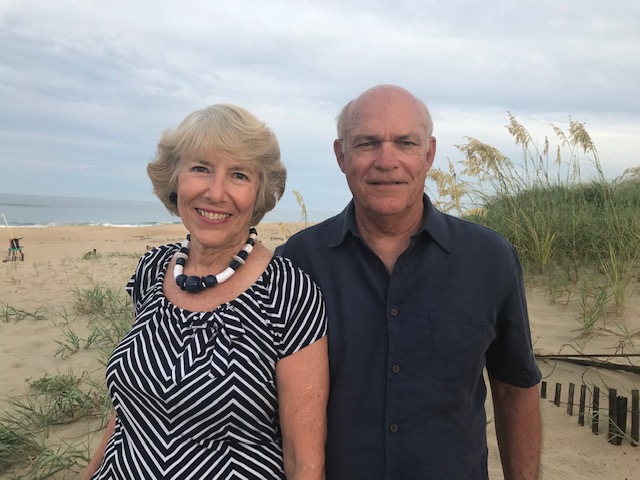
Being married to a TCK has broadened our foundational framework in many ways. It extended the horizon and lens from which we viewed the world and other cultures and set priorities for our work and family life. As a Navy wife, Jodi adapted to the lifestyle and independence needed to raise our family of three children throughout my extended deployments. I am indebted to her for that. As we raised our family, we encouraged our children to participate in summer mission trips as well as off-campus exchanges with international universities during their college years. The importance and value of seeing and interacting with other cultures has been a positive factor in developing their worldview and awareness.
What are some key TCK attributes you developed during your formative years that you believe have most helped you in your career?
Undoubtedly, attending the missionary boarding school was high on the list of experiences that shaped me. I learned to be independent but at the same time learned the importance of being part of the group. Collegiality went a long way to “grease the skids.” When I didn’t “pull my load”—follow through on my responsibilities—or comply with school regulations, consequences played out quickly. The boarding school was a sub-culture that thrived within a third culture environment. Students came from six different countries in Asia, giving us the benefit of blending and sharing the value of ethnic diversity and culture. That was a major contributor in shaping our day-to-day realities and perspectives. Upon graduation from high school, I returned to the USA “to seek my fortune” with $89 US dollars in my pocket. I attribute my introduction to the “American way of life” to my uncle in Ohio. He was a businessman who welcomed me, provided a home base, helped me find summer work for college, and mentored me. He taught me to fish, adapt to “normal” American life, and develop my “American” social skills. I left an environment where my parents were serving in one sense, but looking back, I am grateful that my uncle “served” me in a different, but significant and enduring, way.
What values have guided you throughout your career, whether in military service or humanitarian work?
I observed and experienced that service and sacrifice are two driving principles essential to accomplishing any mission. This was demonstrated by my mother and father and their colleagues. They left a comfortable, secure life in America to serve others. My father, along with five other missionaries, was killed when the Communists overran our mission compound. My mother was seriously injured, held captive by the Communists before being abandoned and left unattended by the side of the road as they departed the city. I was a senior in college when the attack occurred. My mother’s response to that tragedy provided me with a guiding principle that has defined my service in the Navy and humanitarian work. She was taken to a provincial hospital for initial care, and when a Vietnamese nurse saw her and understood what had happened, she said, “You must hate my country and my people.” My mother responded by saying, “No, I love your country and your people. I came to your country to tell you about a God that has given me that love.”
Through both my careers in the military and humanitarian work with World Relief and the US government I was guided by some basic principles. Vision with a clear mission was essential. It is imperative to strive for excellence no matter where in the lineup I was placed. Every organization has a hierarchy of authority and responsibility, and it was important for me to establish clear communication up and down the chain to keep people informed and to solicit feedback. Respect for authority in the organization and community was essential. Those components all came together to shape a team which at the end of the day was responsible for the success or failure of meeting expectations.
Do you believe TCKs may be particularly suited for a career in politics or public service? Why or why not?
I am a strong advocate for public service of any kind be it in politics or civil service. TCKs are naturally suited to pursue either option. Language skills and a broad worldview are competitive advantages. In today’s world, service in politics has become a very challenging and difficult career path. Politics is a “big league” endeavor. The nature of the political discourse that exists today is raw and rough. A heavy dose of reality and selfless purpose is essential to influence and counter the ineffective and stagnant momentum inherent in today’s political environment. It takes someone with a sound and solid set of principles to swim upstream and make an impact for the common good. Public service as a civil servant means being burdened with bureaucratic and rigid processes; however, the opportunity to serve and make a difference on the domestic and international scene is without peer. Dedicated and selfless people are needed in both fields, and I strongly encourage individuals to keep their options open and consider pursuing a career in politics and/or public service.
What are a few of your most rewarding experiences throughout your career?
Flying aircraft from ships at sea has got to be near the top! Leading men and women who come from all over our country – our farms, cities, high schools, and universities, to train them in a skill and then lead them to countries and places they’ve never heard of, to accomplish a specific mission on behalf of the American people is high on the list. Leading and coming alongside the men and women at World Relief to provide humanitarian assistance through local churches is something I’m grateful to have been part of. I’m grateful to have been asked by President Bush to lead the President’s Malaria Initiative. It has resulted in over 7.3 million malaria deaths averted and over 1.2 billion malaria cases prevented in Africa and Asia. It continues to have a positive impact today. I’m grateful to have been able to serve through three different career experiences.
There are many direct and indirect dots that can be connected that affirm the notion that being a TCK is a positive experience and gift.
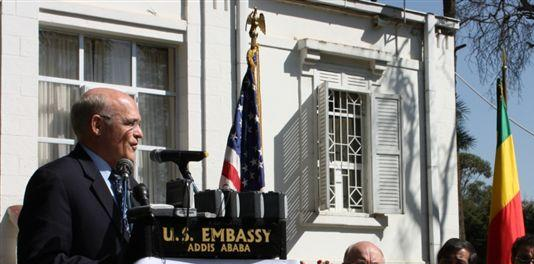
I am a strong advocate for public service of any kind be it in politics or civil service.





